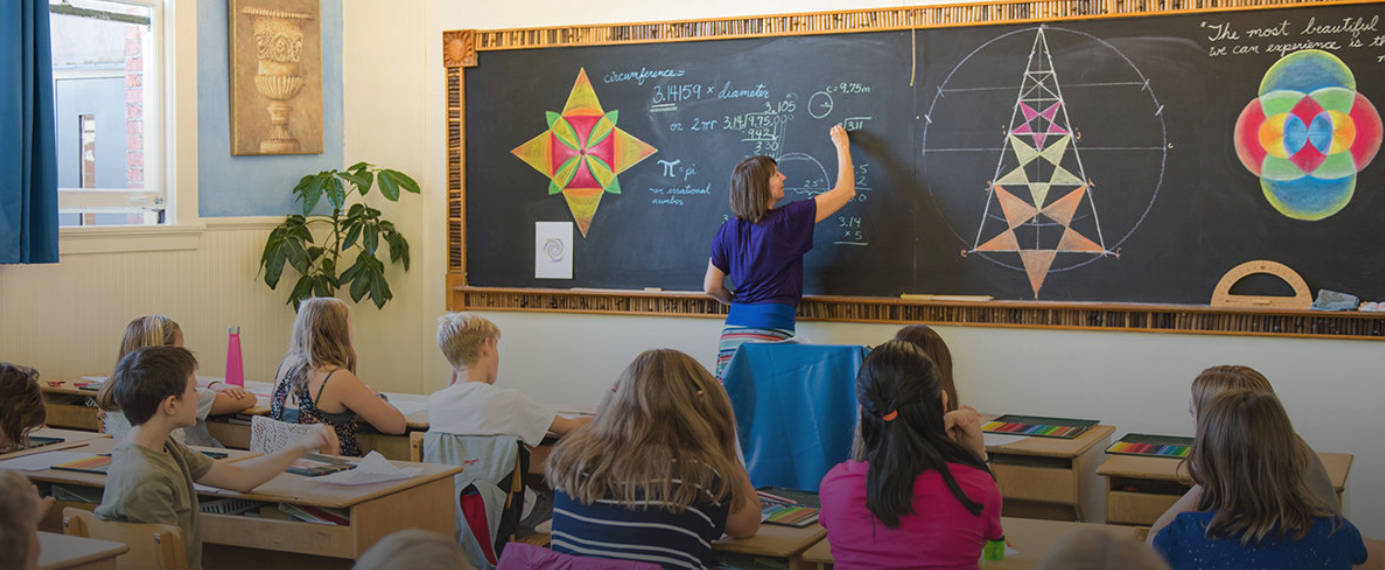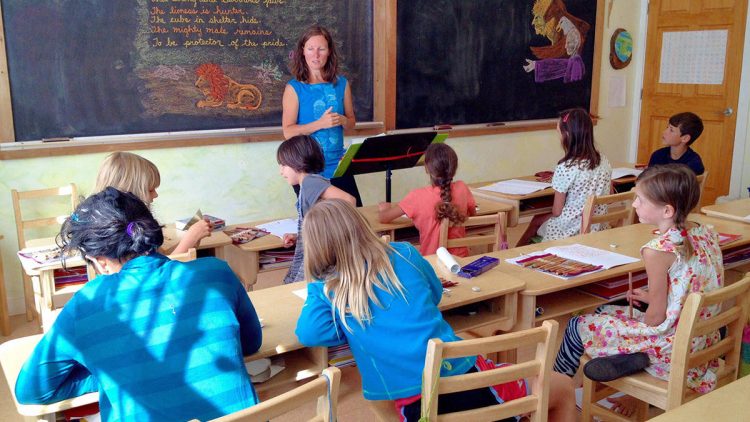Nurturing Imagination: A Comprehensive Exploration of Waldorf Education
Waldorf Education, rooted in the visionary philosophy of Rudolf Steiner, stands as a distinctive tapestry in the realm of education, weaving together holistic principles, artistic expression, and a reverence for the unfolding individuality of each child. This comprehensive exploration aims to unravel the intricacies of Waldorf Education, tracing its philosophical foundations, delving into the unique features that define its classrooms, and examining the profound impact it has on the early years of childhood. From the emphasis on creativity to the deliberate delay of formal academics, we embark on a journey to understand the profound principles that shape Waldorf Education.

Chapter 1: Foundations and Philosophy
1.1 Rudolf Steiner and Anthroposophy
- Description: Waldorf Education is grounded in the anthroposophical philosophy developed by Rudolf Steiner. This section explores Steiner’s life, the core tenets of anthroposophy, and the application of these principles in education.
1.2 The Waldorf School Movement
- Description: The inception of the first Waldorf School in 1919 marked the beginning of a global educational movement. This section traces the expansion of Waldorf schools worldwide, highlighting key milestones and challenges faced by the movement.
1.3 Holistic Education Principles
- Description: At the heart of Waldorf Education are holistic principles that consider the physical, emotional, and spiritual dimensions of a child. This section delves into the foundational principles, including the threefold nature of the human being and the stages of child development.

Chapter 2: Waldorf Classroom Experience
2.1 The Role of the Class Teacher
- Description: In Waldorf Education, the class teacher plays a central role in the child’s journey, often accompanying the same group of students through several years. This section explores the unique relationship between class teachers and their students.
2.2 The Block Teaching Method
- Description: Waldorf Education employs the block teaching method, where subjects are taught in extended blocks to allow for in-depth exploration. This section examines the rationale behind this method and its impact on student engagement.
2.3 A Curriculum Rooted in Arts and Practical Skills
- Description: Waldorf curriculum integrates arts and practical skills seamlessly into academic subjects. This section explores how subjects like mathematics, science, and language arts are approached through artistic and practical experiences.
2.4 The Importance of Rhythms and Rituals
- Description: Rhythms and rituals are integral to the Waldorf classroom, providing a sense of stability and fostering a connection with the natural world. This section explores the significance of daily, weekly, and seasonal rhythms in Waldorf Education.

Chapter 3: Age Group Considerations
3.1 Early Childhood Education in Waldorf Schools
- Description: Waldorf Education begins with early childhood education, typically for children aged 3 to 6. This section outlines the principles guiding early childhood education in Waldorf schools, including the importance of play and imagination.
3.2 The Lower School Years
- Description: As children progress into the lower school years, Waldorf Education adapts its approach to align with the developmental stages of the child. This section explores the curriculum and pedagogy for children aged 6 to 14.
3.3 The High School Years
- Description: Waldorf high schools aim to nurture well-rounded individuals with a sense of purpose and a love for learning. This section delves into the unique features of Waldorf high school education, including the emphasis on the arts and humanities.

Chapter 4: Features of Waldorf Education
4.1 Creativity as a Core Value
- Description: Creativity is a cornerstone of Waldorf Education. This section explores how artistic expression, including visual arts, music, and movement, is woven into every aspect of the curriculum.
4.2 Delayed Academics and Play-Based Learning
- Description: Waldorf Education intentionally delays the introduction of formal academics, emphasizing play-based learning in the early years. This section discusses the rationale behind this approach and its impact on child development.
4.3 Imagination and Storytelling
- Description: Storytelling holds a significant place in Waldorf Education, fostering imagination and a love for literature. This section explores the art of storytelling in Waldorf classrooms and its role in language development.
4.4 A Focus on Handwork and Practical Skills
- Description: Waldorf Education places value on developing practical skills through activities such as handwork, woodworking, and gardening. This section examines how these activities contribute to a child’s overall development.

Chapter 5: Criticisms and Controversies
5.1 Common Criticisms of Waldorf Education
- Description: While Waldorf Education has gained admiration, it has also faced criticisms. This section addresses common concerns, including the perceived lack of academic rigor and the influence of anthroposophy.
5.2 Addressing Controversies: Transparency and Inclusivity
- Description: Waldorf schools have worked to address controversies by emphasizing transparency and inclusivity. This section explores efforts made by Waldorf schools to create more open dialogues with parents and the wider community.
Conclusion:
In the canvas of educational philosophies, Waldorf Education emerges as a vibrant palette of colors, inviting children to explore, create, and imagine. This comprehensive exploration seeks to illuminate the nuanced principles that shape Waldorf Education, from its anthroposophical roots to the daily experiences of children in Waldorf classrooms. As we navigate this journey, it becomes evident that Waldorf Education is not just a pedagogical method; it is a holistic philosophy that honors the unique spirit of each child, fostering a lifelong love for learning and a deep connection with the world around them.








